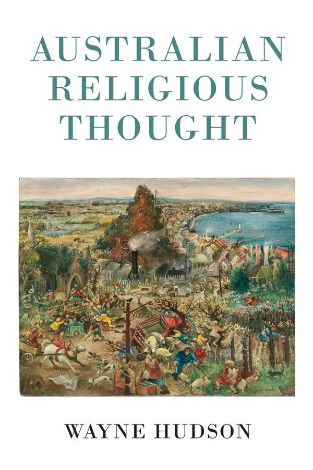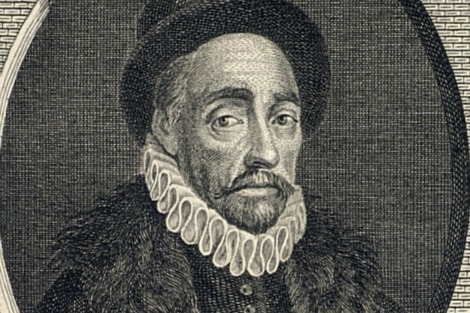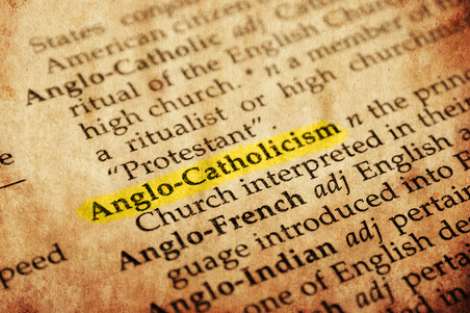Keywords: Spirit Of Religion
-

RELIGION
- Frank Brennan
- 22 March 2016
6 Comments
I offer no public judgment of Pell, and unlike many other commentators I'll await the findings of the royal commission. I have however been outspoken about his right to a fair hearing and natural justice, not because I am a priest but because I am a human rights lawyer who cares about the universal application of the rule of law. It is when a representative of institutional religion like Pell taps into the generic religious sensibility or moral consciousness that the real work of Australian religious thought is done.
READ MORE
-

EUREKA STREET TV
- Peter Kirkwood
- 28 October 2015
4 Comments
'How we address radicalisation as a psychologist is to help people to examine their way of thinking. Every form of radicalisation and fundamentalism is to do with rigidity in the way people think. Our job is to help people to see that rigidity in anything doesn't work.' Clinical psychologist Shehzi Yusaf has a particular interest in the role of religion and spirituality in mental health. She is based in Parramatta, the site of the recent murder of NSW police employee Curtis Cheng by 15-year-old Farhad Jabar.
READ MORE 
-

AUSTRALIA
- Frank Brennan
- 23 October 2015
4 Comments
Francis knows there are all sorts of issues inside and outside the Church where for too long people with power have tried to keep the lid on, in the hope that the problems and complexities will go away, often by parodying those who see the problems or complexities as small 'l' liberals or cafeteria Catholics. He delights in being joyful and troubled while contemplating big problems, calling people of good will to the table of deliberation reminding them of the kernel of the Christian gospels. He has the faith and hope needed to lift the lid without fear and without knowing the answers prior to the dialogue occurring.
READ MORE
-

ARTS AND CULTURE
- Patti Miller
- 14 October 2015
13 Comments
I have always felt guilty about an inability to commit to any belief system. So when Montaigne said 'Only fools have made up their mind', I felt an enormous sense of relief. He knew that those who are certain are the ones to shut down newspapers, lop off heads, blow up planes, burn books. There is a thread throughout his essays, too, of him finding sex undignified and therefore unfitting for grown men and women. It is one of his many contradictions and confronts me with my own contradictory attitude.
READ MORE 
-

- Frank Brennan
- 18 September 2015
Pope Francis's concerns are not narrowly dogmatic or pedagogical but universally pastoral. He knows that millions of people, including erstwhile Catholics, are now suspicious of or not helped by notions of tradition, authority, ritual and community when it comes to their own spiritual growth which is now more individual and eclectic. He wants to step beyond the Church's perceived lack of authenticity and its moral focus on individual matters, more often than not, sexual. He thinks the world is in a mess particularly with the state of the planet — climate change, loss of biodiversity and water shortages, but also with the oppression of the poor whose life basics are not assured by the operation of the free market, and with the clutter and violence of lives which are cheated the opportunity for interior peace. He is going to great pains to demystify his office. He wants all people of good will to emulate him and to be both joyful and troubled as they wrestle with the probl
READ MORE
-

- Frank Brennan
- 01 September 2015
1 Comment
If you want to form government in Australia and if you want to lead the Australian people to be more generous, making more places available for refugees to resettle permanently in Australia, you first have to stop the boats. If you want to restore some equity to the means of choosing only some tens of thousands of refugees per annum for permanent residence in Australia from the tens of millions of people displaced in the world, you need to secure the borders. The untrendy truth is that not all asylum seekers have the right to enter Australia but that those who are in direct flight from persecution whether that be in Sri Lanka or Indonesia do, and that it is possible fairly readily (and even on the high seas) to draw a distinction between those in direct flight and those engaged in secondary movement understandably dissatisfied with the level of protection and the transparency of processing in transit countries such as Malaysia and Indonesia. The popular evil is that political
READ MORE
-

RELIGION
- Kevin Donnelly
- 31 August 2015
23 Comments
Various state based legislation argues that education in government schools should be secular in nature, but it does not rule out a place for religion in the general curriculum. To argue that religions should have a greater place in the school curriculum is not to proselytise. Rather it is to recognise that, while we are a secular society, students need to encounter a more transcendent sense of life that incorporates a strong moral, spiritual and ethical dimension.
READ MORE 
-

- Frank Brennan
- 26 August 2015
7 Comments
When addressing Italian doctors last November, Pope Francis quoted St. Camillus de Lellis who suggested that the most effective method in caring for the sick was simply to 'Put more heart into those hands.' Let's do something to change the market settings and political settings here in Australia to modify the behaviour of all Australians in the future, and let's attend to our own Franciscan interior ecological conversion with our care for the vulnerable.
READ MORE
-

- Frank Brennan
- 06 August 2015
3 Comments
Pope Francis is not the first pope to address a social encyclical to everyone. But in comparison with his predecessors, Francis has been more inclusive in the process of writing the encyclical and in the final content of the document. He quotes from 17 different conferences of Catholic bishops. He is at pains to indicate that he is collaborative and that he takes the principle of subsidiarity very seriously. Being the final redactor of the text, he has felt free to interpolate some very folksy advice from time to time. He has also taken the liberty of inserting some very blunt, evocative images of environmental and economic devastation.
READ MORE
-

- Frank Brennan
- 03 August 2015
1 Comment
I am one of those Jesuits who sometimes has been perceived as not being sufficiently loyal to the church hierarchy. From time to time, people of good will have urged me to consider Ignatius' rules for thinking with the Church which are appended to his Spiritual Exercises. The stereotypical view of those rules is often summed up by quoting the first sentence of the 13th rule: 'To keep ourselves right in all things, we ought to hold fast to this principle: What I see as white, I would believe to be black if the hierarchical Church would thus determine it.' But life was not ever that simple, even in the time of Ignatius. Feast of St Ignatius homily by Frank Brennan
READ MORE
-

- Frank Brennan
- 08 July 2015
3 Comments
I suspect Pope Francis had some of our Jesuit alumni in mind when he wrote in his encyclical Laudato Si: 'A politics concerned with immediate results, supported by consumerist sectors of the population, is driven to produce short-term growth... True statecraft is manifest when, in difficult times, we uphold high principles and think of the long-term common good. Political powers do not find it easy to assume this duty'.
READ MORE
-

- Frank Brennan
- 24 June 2015
1 Comment
Given the ready access we have to international media and the world wide web, we can no longer plead ignorance of the trouble going on in our world. Those of us who are purist pacifists can presumably put a coherent case for eschewing violence in all cases, even were a madman to be imminently threatening the lives of our most vulnerable loved ones.
READ MORE